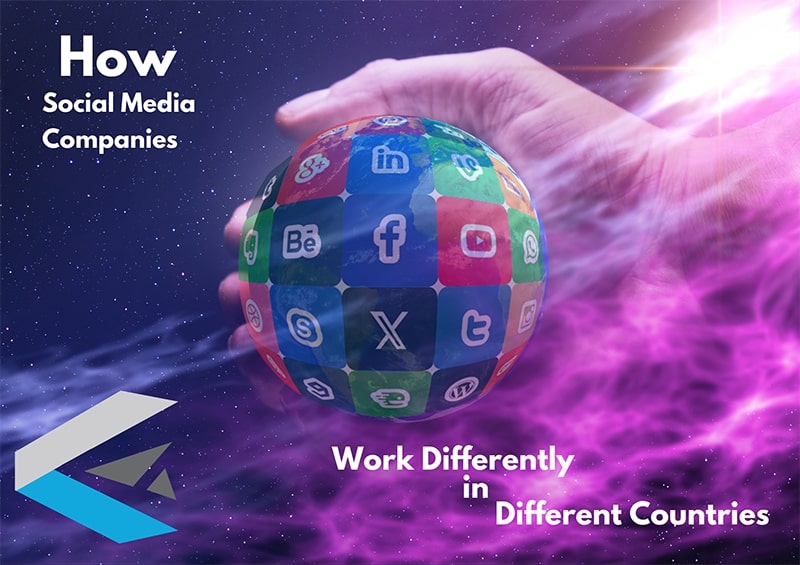How Social Media Companies Work Differently in Different Countries
Created Date : 2024-09-25
Copy URL :

Social media is a global phenomenon that connects billions of people across different countries and cultures. However, social media is not a monolithic entity that operates in the same way everywhere. Social media companies have to adapt and adjust to the local contexts and regulations of the countries where they operate, and face different challenges and opportunities in different markets. In this blog, we will explore how social media companies work differently in different countries, and what are the implications for users, businesses, and governments.
Regulatory differences
One of the main factors that affect how social media companies work in different countries is the regulatory environment. Different countries have different laws and policies that govern the use and operation of social media platforms, such as data privacy, content moderation, taxation, competition, and national security.
For example, the European Union has enacted the General Data Protection Regulation (GDPR), which gives users more control and rights over their personal data, and imposes strict rules and fines on social media companies that collect and process user data. China has blocked or restricted access to many foreign social media platforms, such as Facebook, Twitter, and YouTube, and has developed its own domestic platforms, such as WeChat, Weibo, and Douyin, that are subject to censorship and surveillance by the government. India has recently introduced new rules that require social media companies to appoint local representatives, remove unlawful content within a specified time frame, and comply with government requests for user data and traceability of messages.
These regulatory differences pose significant challenges and costs for social media companies that operate in multiple countries, as they have to comply with different and sometimes conflicting rules and standards, and face legal and political risks and uncertainties. They also affect the user experience and the quality and availability of the services and features that social media companies offer in different countries.
Cultural differences
Another factor that affects how social media companies work in different countries is the cultural context. Different countries have different cultural values, norms, and preferences that influence how people use and perceive social media platforms, such as language, communication style, online behavior, and content consumption. For example, Japan has a high-context culture, where people rely more on non-verbal cues and implicit meanings, and tend to avoid direct confrontation and criticism. This is reflected in how Japanese users prefer to use social media platforms that allow them to express themselves anonymously or pseudonymously, such as Line, Mixi, and Twitter, and avoid revealing their real identities and personal information. Brazil has a low-context culture, where people rely more on explicit and direct communication, and tend to be more expressive and emotional. This is reflected in how Brazilian users prefer to use social media platforms that allow them to share their opinions and feelings, such as Facebook, Instagram, and WhatsApp, and engage in lively and passionate discussions and debates.
These cultural differences require social media companies to tailor and customize their services and features to suit the needs and preferences of different users in different countries, and to understand and respect the local customs and sensitivities. They also create opportunities for social media companies to innovate and diversify their offerings and to tap into new and emerging markets and segments.
Conclusion
Social media companies work differently in different countries, due to the regulatory and cultural differences that exist in the global landscape. These differences present both challenges and opportunities for social media companies, as well as for users, businesses, and governments, that interact and engage with them. To succeed and thrive in this diverse and dynamic environment, social media companies need to be adaptable and responsive, and to balance the global and the local, the universal and the specific, and the common and the unique.